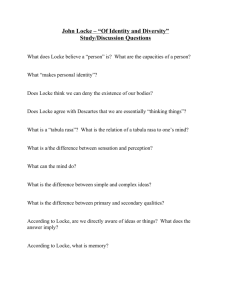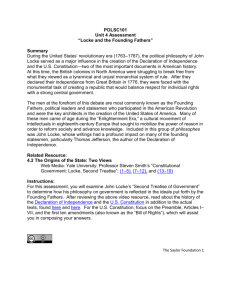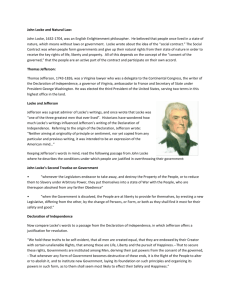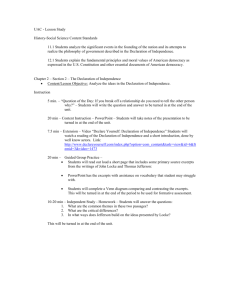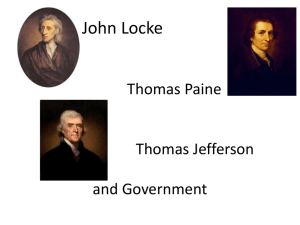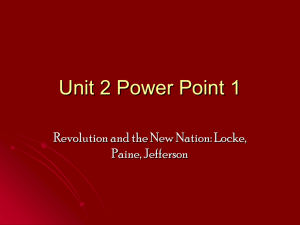The Influence of John Locke
advertisement
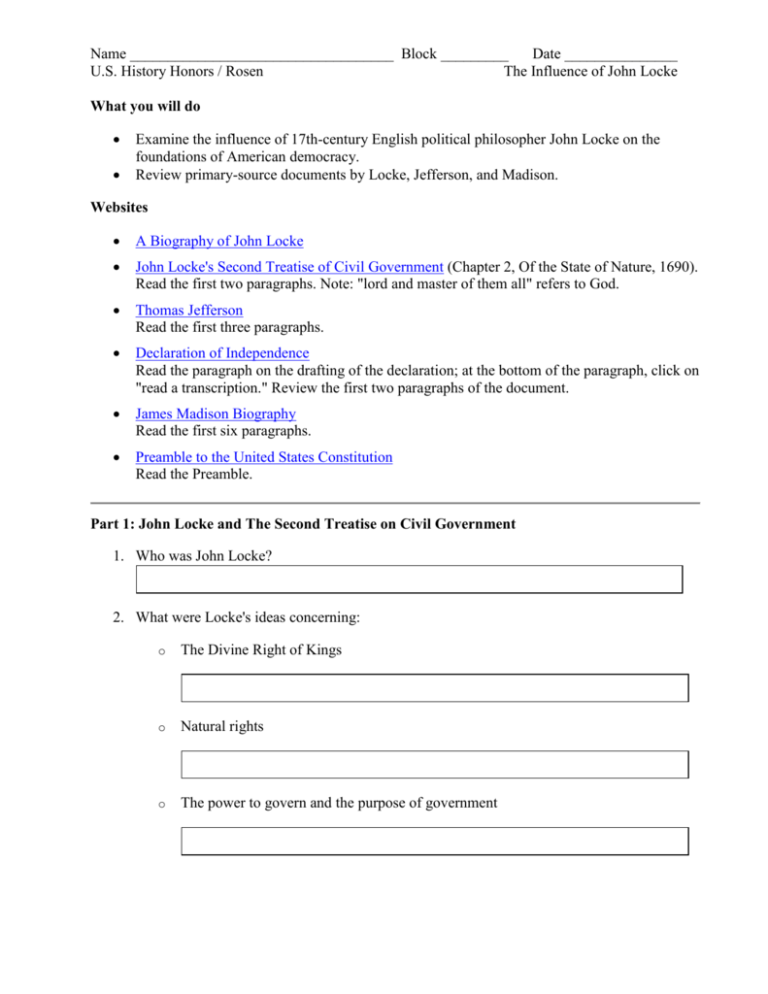
Name ___________________________________ Block _________ Date _______________ U.S. History Honors / Rosen The Influence of John Locke What you will do Examine the influence of 17th-century English political philosopher John Locke on the foundations of American democracy. Review primary-source documents by Locke, Jefferson, and Madison. Websites A Biography of John Locke John Locke's Second Treatise of Civil Government (Chapter 2, Of the State of Nature, 1690). Read the first two paragraphs. Note: "lord and master of them all" refers to God. Thomas Jefferson Read the first three paragraphs. Declaration of Independence Read the paragraph on the drafting of the declaration; at the bottom of the paragraph, click on "read a transcription." Review the first two paragraphs of the document. James Madison Biography Read the first six paragraphs. Preamble to the United States Constitution Read the Preamble. Part 1: John Locke and The Second Treatise on Civil Government 1. Who was John Locke? 2. What were Locke's ideas concerning: o The Divine Right of Kings o Natural rights o The power to govern and the purpose of government 3. In his book The Second Treatise on Civil Government, what did Locke say about (the state of) equality? Part 2: Thomas Jefferson and the Declaration of Independence 4. Who was Thomas Jefferson and what was his role in the drafting of the Declaration of Independence? 5. Carefully read the first two paragraphs of the Declaration of Independence. How did Jefferson use Locke's ideas? Use specific quotations from the document to show the connection between the Declaration of Independence and the ideas of John Locke. o Equality o Natural rights o The power to govern and the purpose of government Part 3: James Madison and the Constitution 6. Who was James Madison and what was his role in the drafting of the Constitution? 7. The Preamble explains the goals and purposes of the Constitution. How did John Locke's ideas provide the basis for the Preamble? Part 4: John Locke's ideas today 8. In the Declaration of Independence, Thomas Jefferson changed John Locke's natural rights of life, liberty, and property to the "unalienable Rights" of life, liberty, and the pursuit of happiness. Jefferson's phrase appealed to American colonists as a revolutionary slogan. What do you think the natural right to pursue happiness means to people of the United States in the 21st century?



